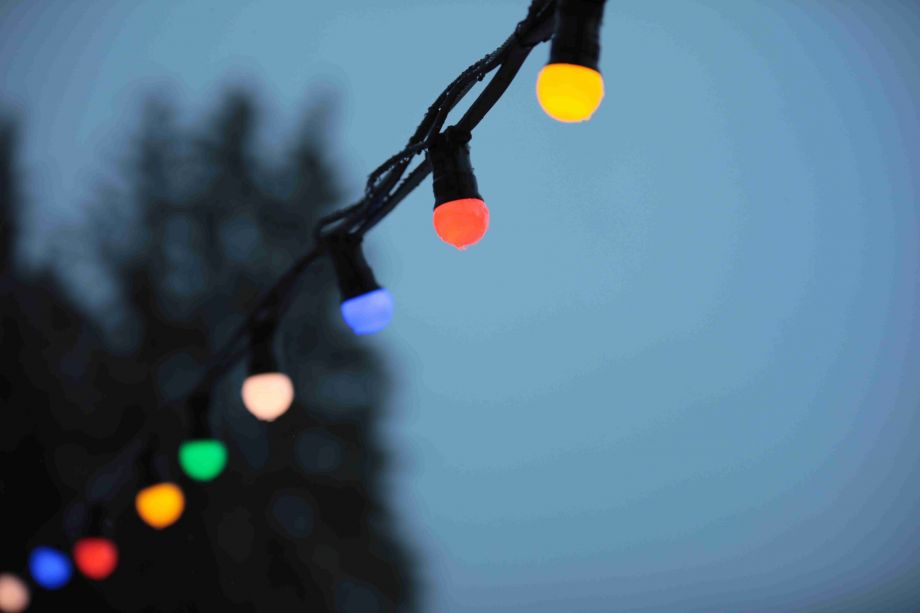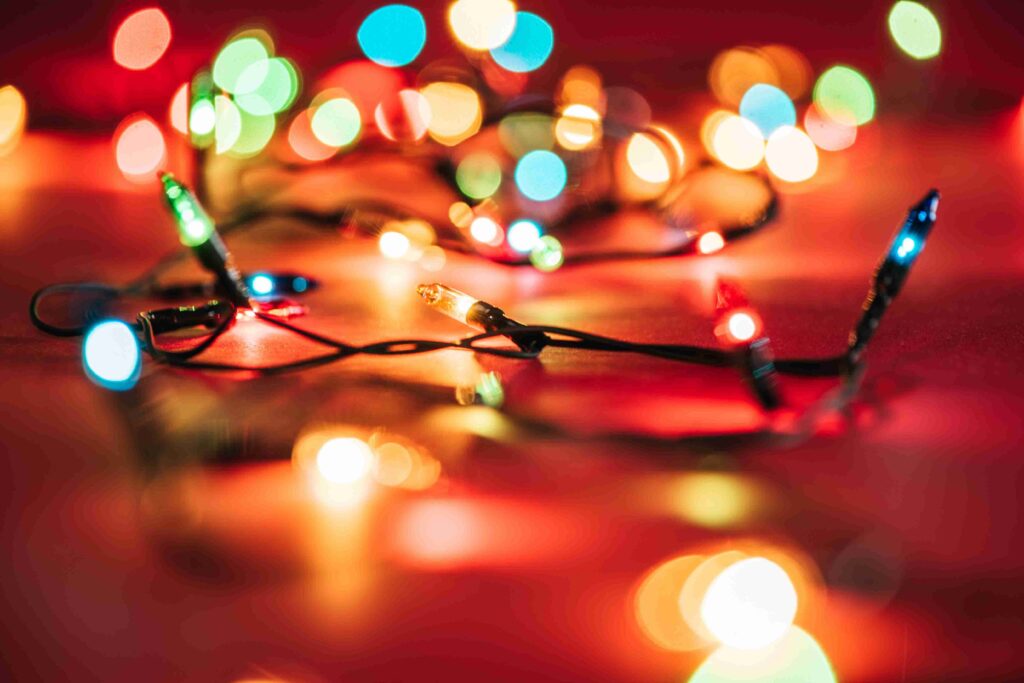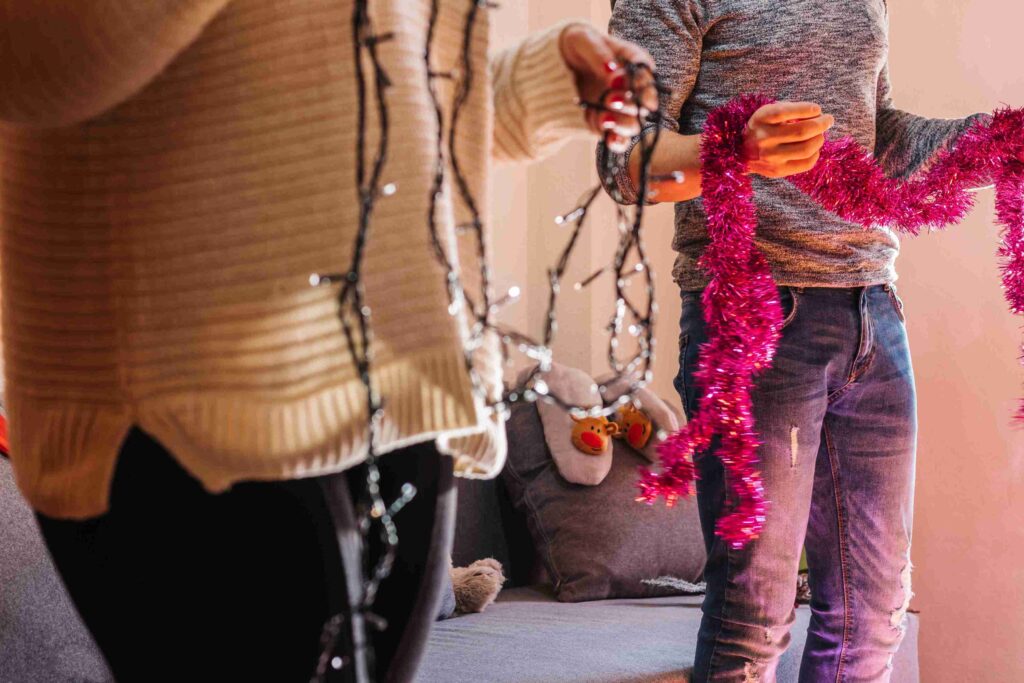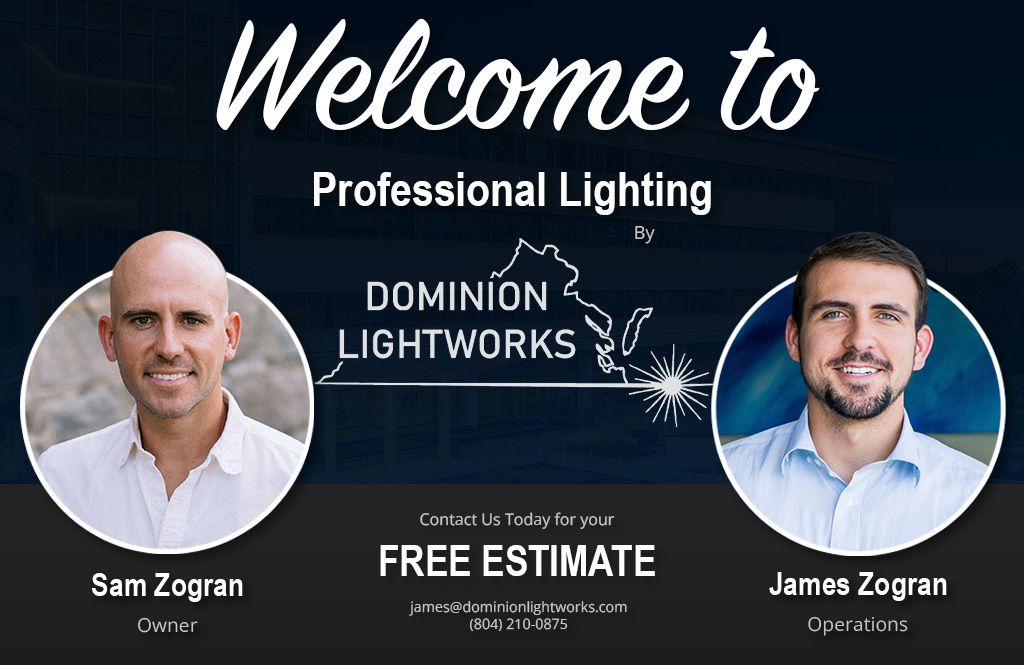
Are Christmas Lights Waterproof? (Explained)
There’s nothing like stringing up Christmas lights to flip the switch on holiday spirit.
But before you climb the ladder and start clipping them to your gutters, there’s one thing you need to figure out – can they actually handle being outside in the rain, snow, and cold?
Spoiler: not all lights are built for the same job. Some are made for outdoor life, some aren’t, and using the wrong kind in the wrong place can lead to big problems.
In this post, we’ll explain if Christmas lights are waterproof and how to make sure you’re using the right lights.
Table of Contents
ToggleAre Christmas Lights Waterproof?
Christmas lights are not fully waterproof, but many are water-resistant and safe for outdoor use.
Indoor-only lights cannot handle rain, snow, or moisture and should never be used outside. They’re made for cozy living rooms, not front yards in December storms.
The wires, plugs, and sockets on indoor sets just aren’t built to deal with rain, sleet, or snow. Take them outside, and you’re basically asking for trouble.
Outdoor-rated lights, on the other hand, have extra layers of protection.
The wiring is sealed better, the bulbs and sockets are made to keep moisture out, and the plugs are designed to work with weatherproof covers.
But even then, they’re not indestructible.

Also Read: Can You Cut Christmas Lights?
What “Waterproof” Really Means For Christmas Lights?
So, when you hear “waterproof,” what exactly does that mean?
In everyday language, “waterproof” sounds like something that can survive a flood. But in the world of electrical products, it’s more like “water-resistant to a point.”
There’s a big difference between being able to sit out in the rain and being able to run underwater.
When you see “waterproof” on Christmas lights packaging, it generally means they’re safe to use outdoors in wet conditions. That includes rain, snow, and humidity.
But if you were to submerge them, even the outdoor-rated sets would fail.
IP Ratings
If you want to know exactly how water-friendly your lights are, check their IP rating.
IP stands for “Ingress Protection,” and it’s the official way to measure how resistant a product is to water and dust.
Here’s how it works: the IP rating is made up of two numbers. The first one tells you how well the lights can handle dust or dirt. The second one shows you how well they resist water.
For example:
- IP44 means your lights are protected against solid objects over 1mm and splashing water from any direction. It’s safe for most outdoor use.
- IP65 means your lights are dust tight and protected against water jets. More protection for harsher weather.
- IP67 means your lights are dust tight and protected against immersion in water up to 1 meter for a short time.
Most outdoor Christmas lights are IP44 or higher. If you can’t find the rating on the packaging, look it up on the manufacturer’s site.
Dangers Of Using The Wrong Lights Outside
What happens if you use the wrong lights outside? Unfortunately, it’s not just about ruining your holiday display. There are real safety risks involved.
First, when non-outdoor lights get wet, they can short out.
This could lead to lights not working, but it can also cause dangerous issues, like sparks or even fires. Wet lights, exposed wiring, and faulty connections are the perfect recipe for a disaster.
Plus, if the lights aren’t properly protected, water could get into the wiring and cause an electrical shock if you or anyone else touches them.
Then, there’s the risk of your lights just not lasting as long.
Also Read: How Much Does Christmas Light Installation Cost?
If your lights are meant for indoor use and you put them outside in the rain or snow, they could burn out quicker, leaving you with dark spots on your house when you least expect it.
How To Check If Your Christmas Lights Are Safe For Outdoors
Not sure if your Christmas lights are safe for outdoor use? No problem! You don’t have to guess. Manufacturers make it pretty easy to figure out what’s safe for where.

Start with the label on the string of lights (yep, the one you usually ignore).
It’ll clearly say “Indoor” or “Indoor/Outdoor.”
If you spot an IP rating like IP44 or IP65, you’re in business. Those ratings tell you how much dust and water the lights can handle like we said, and anything IP44 or higher is generally fine.
If the box or tag is long gone, you can usually find the info on the manufacturer’s website.
If you’re still not sure, play it safe and use them indoors. It’s better to buy a separate set of outdoor lights than to risk an electrical hazard.
Tips For Keeping Outdoor Lights Safe In Wet Weather
Even outdoor lights can use a little help staying safe and functional through the season. Here are some of our best tips for you:
Also Read: Cat Chewing On Christmas Lights
- Use weatherproof extension cords and covers to keep connections dry.
- Keep plugs and connectors off the ground since moisture pools at the lowest point.
- Secure your lights tightly so wind doesn’t loosen them and expose wiring.
These small habits can mean the difference between your lights lasting years or fizzling out before New Year’s.
Bottom Line
Christmas lights aren’t completely waterproof, but the right outdoor-rated ones can handle rain, snow, and damp winter nights without a problem.
Indoor sets should never leave the house, and even outdoor sets appreciate a little extra care in bad weather.
Always check the rating, read the label, and give them some extra protection in bad weather. That way, you can enjoy your holiday glow without worrying about sparks flying.
Our Blogging Experts

James Zogran – Head of Operations
At Dominion Lightworks, we’re a team of experienced lighting professionals dedicated to providing exceptional lighting solutions for residential and commercial properties.
Our Locations
Christmas Lighting in Richmond, VA
1394 Manakin Rd
Manakin Sabot, VA 23103
Mon-Fri 7 am – 10 pm
Sat-Sun Closed
Landscape Lighting in Richmond, VA
595 Weaver Brook Walk
Ridge, VA 23233
Mon-Fri 7 am – 10 pm
Sat-Sun Closed







